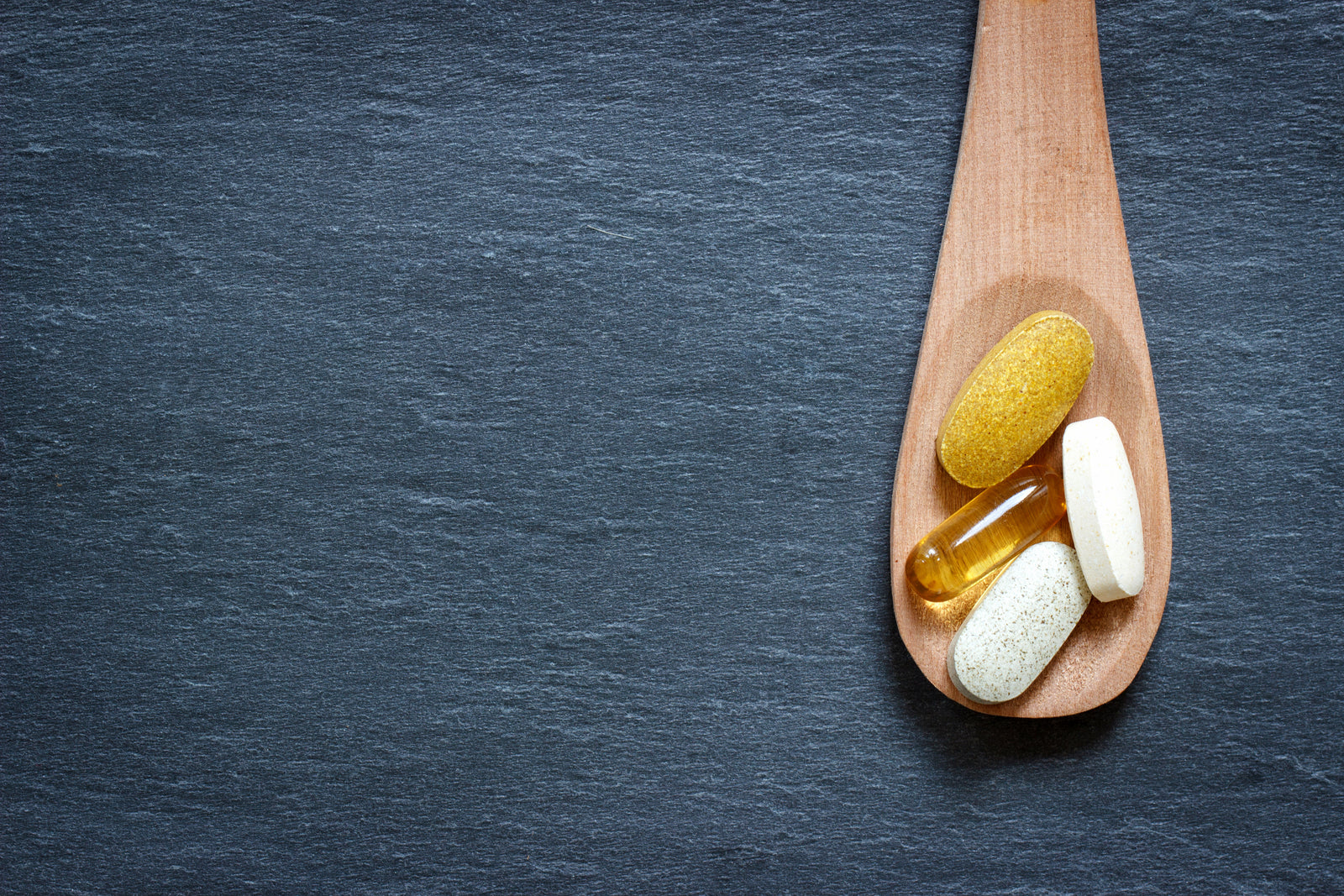What Vitamins Should I Take With Collagen?

Can you take collagen with other vitamins?
Yes, you can take collagen safely with other vitamins. There has been no reports of any problems or side affects recorded with taking a collagen supplement alongside other vitamins.
Do collagen supplements interact with other medications?
No, there are no known interactions that have been recorded when collagen is taken as a supplement alongside other vitamins or prescribed medications.
What vitamins should I take with collagen?
There are many vitamins you can take alongside collagen safely. We have created a list below for you to take a look at the different vitamins that complement our collagen supplement! Please note, some of them listed below we already get enough of from a varied and well balanced diet, others can be found in supplementation.
Vitamin C
Vitamin C, also known as ascorbic acid, is an essential when it comes down to the synthesis of collagen. It helps to produce collagen. Vitamin C supplements can enhance your immune system and also boost your skin health, and the growth and repair of body tissues. The recommended daily allowance for vitamin C is no more than 2,000mg per day, with a minimum of 75mg.
You can also find vitamin C in foods such as citric fruits, broccoli, strawberries and potatoes.
Vitamin A
Vitamin A, also commonly known as retinol, helps fight our bodies natural defence against illness and infections. Vitamin A also contributes to keeping our skin and vision healthy. You can buy vitamin A as a supplement, however you should be able to get all the vitamin A you need from eating a varied and balanced diet. Good sources of vitamin A (retinol) include cheese, eggs, oily fish, low fat spreads, milk and yoghurt. Liver and liver products are particularly rich in vitamin A. You can also get Vitamin A by incorporating good sources of beta-carotene into your diet, as the body is able to convert this into retinol. Clever, right?! Good food sources of beta-carotene are yellow, red and green vegetables and fruits, such as: Peppers, potatoes, spinach, carrots and fruits such as mango and apricots.
If you are pregnant or thinking of having a baby it is recommended that you avoid taking supplements that contain vitamin A. It has also been advised that if you have been through the menopause and at risk of osteoporosis, you should avoid having more than 1.5mg of Vitamin A per day.
Zinc
Zinc is the second most abundant trace mineral found in the body. It is present in all tissue and contributes towards the maintenance of our immune system function, helps to protect our cells from oxidative stress (which makes it an antioxidant) and also plays a part in the upkeep of healthy nails, skin and hair. Zinc is naturally found in different foods, such as red meat, shellfish, seeds, nuts, legumes, dark chocolate and some vegetables. The recommended dose of zinc is 25mg per day unless advised otherwise by a doctor or health professional.
L-arginine
L-arginine is needed for collagen accumulation in the body, it helps to boost the production of nitric oxide which aids circulation of oxygen and nutrients. It is naturally found in eggs, meat and fish. Studies suggest that L-arginine can help towards reducing blood pressure, can speed up the wound healing process and potentially improve overall heart health. However, you can take too much of it, even though it is generally safe when taken also as a supplement.
Whey Protein
Whey Protein contains all the essential amino acids which collagen does not, making it the perfect accompaniment to take with a collagen supplement. Whey protein contributes towards supporting post exercise recovery and muscle repair and growth. You can of course obtain enough protein through food sources such as meat, fish and eggs but whey protein is a quick and easy way to meet your daily protein goal. The amount of protein we need varies dependent on your weight, height and daily expenditure (calories burnt throughout the day).
If you are seeking medical advice on supplementation, please contact your doctor or a medical professional.















